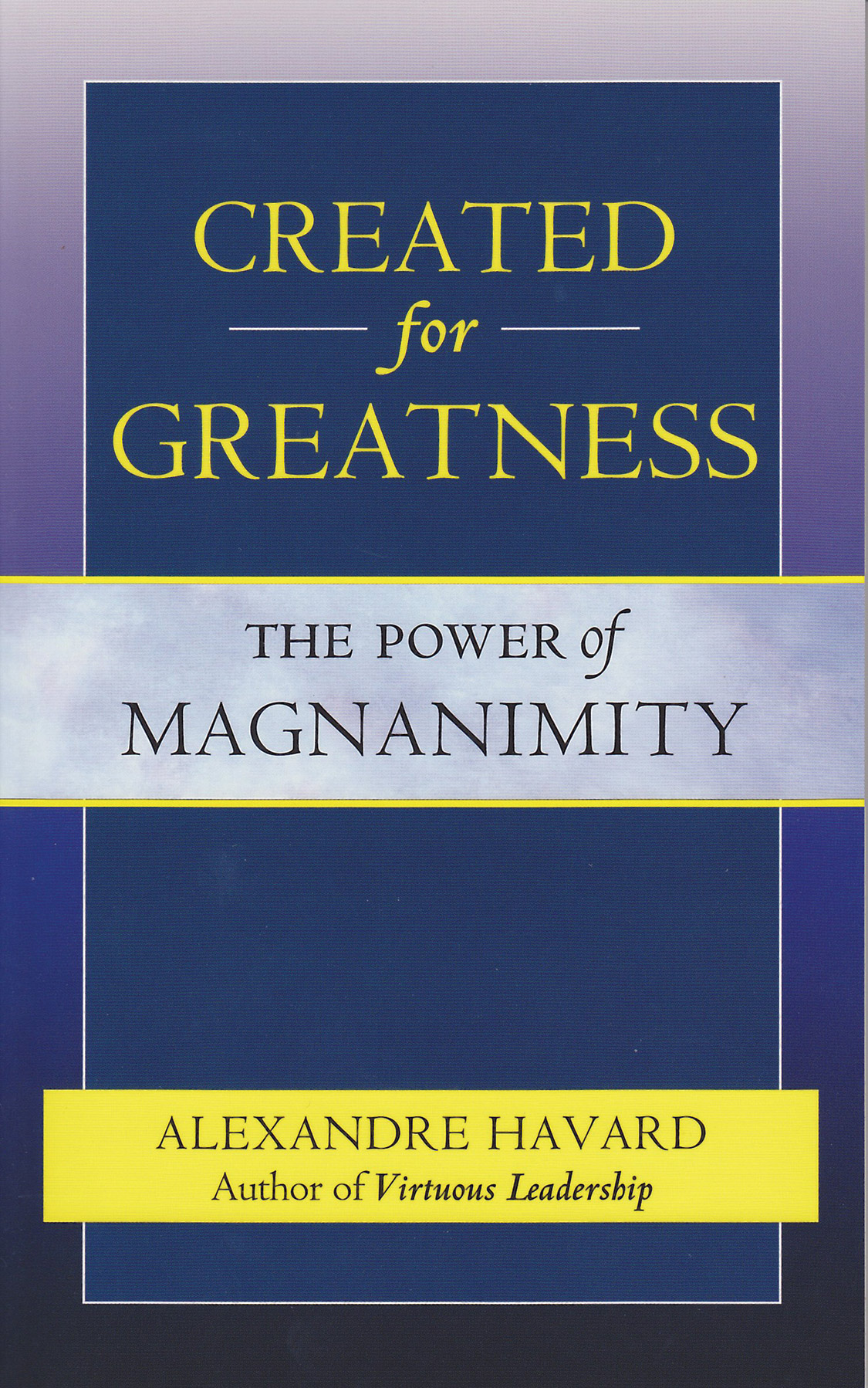What are the qualities that make up an extraordinary leader? Think hard before you answer this question—and don’t limit yourself to a business, location, or time.
For me, it’s difficult to capture in my own words, as my heroes appear luminous and elusively magical. As I struggle to conceptualize the right qualities that they all have in common, I remember a relatively obscure book that was gifted to me at one time. It stands out as a diamond in the publication mine and is titled, Created for Greatness: The Power of Magnanimity, written by Alexandre Havard (Scepter Publishers, 2011). The author proposes two simple yet profound ideals that have now become a summary in my views of leadership: Magnanimity and humility.
The Drive for Greatness
Magnanimity is the insatiable longing to accomplish great things in life. You can’t fake this. It’s an ideal rooted on authentic living, on literally “be-ing.” Its foundation is personal excellence, as you cannot simply transfer to others what you do not possess. Aristotle called magnanimity the “ornament of the virtues” because it elevates the other human virtues to achieve perfection. The inverse of magnanimity is pusillanimity, the mistaken belief that we are incapable of great things, often rooted in fear of failure, hedonism, or cowardice.
The magnanimous person believes himself worthy of envisioning and reaching audacious dreams. You’ll know you’re pursuing a magnanimous life when you can truthfully affirm, as Joan of Arc did, “It was for this that I was born.”
The Balance of Humility
Magnanimity without humility spirals down into pride, selfishness, and megalomania. It becomes an obsession with the exercise of power, especially in the domination of others. You’ll sense this in superficial leaders as calculating, evasive and manipulative.
Selfless magnanimity demands you become great through enabling the greatness in others. As Havard states, “Magnanimity is the thirst to lead a full and intense life; humility is the thirst to love and sacrifice for others. Magnanimity affirms our own personal greatness; humility affirms the dignity and greatness of others.”
Humility recognizes the dignified uniqueness and incalculable value of each person. To lead with humility is to empower others with the capacity to realize their full human potential. The most exalted way to lead and serve others is to bring out their own individual greatness.
Observations from Experience
Today’s leadership literature is shallow in personal character building. I get it, it’s easier to give a five-step process or point to one particular skill as the remedy for all—these sell more books. But in my experience, true leadership can only start with the character of the person leading.
I acknowledge that these concepts are ancient and we may not agree with all the precepts, but think back to the opening question. Now make it personal: In 50 years, what characteristics do you want to be remembered for? Aspiring for magnanimity and humility, I remain.





